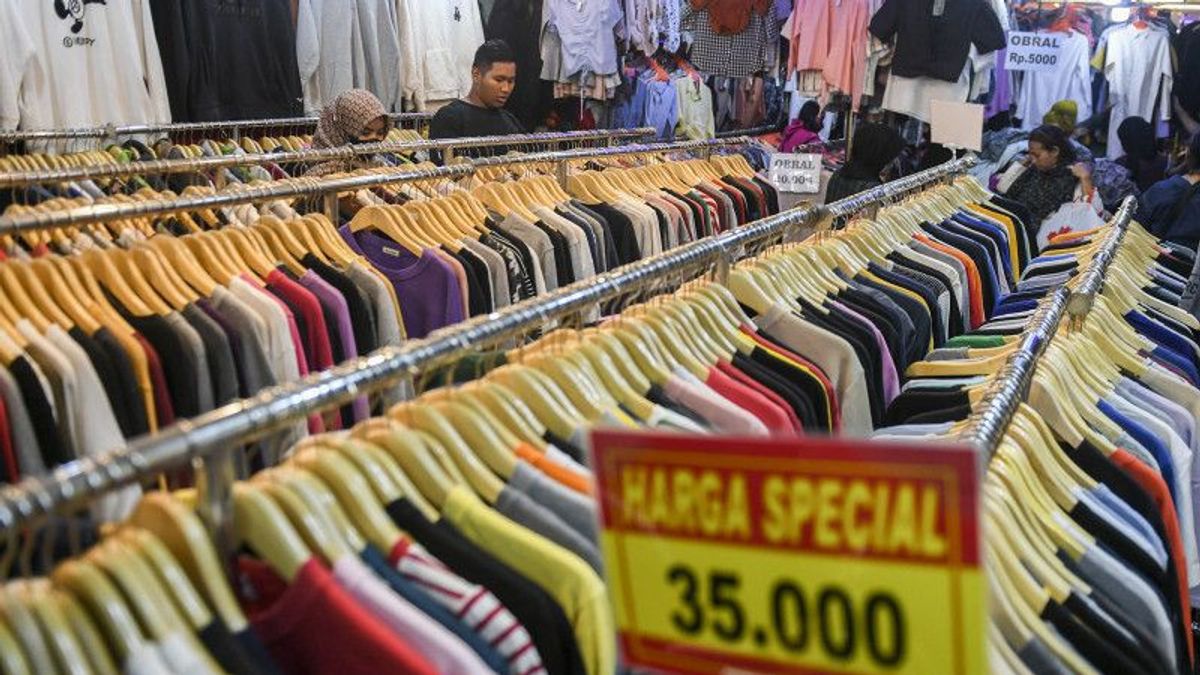JAKARTA - The phenomenon of thresholding used imported clothing is still in the spotlight of many parties today, one of which is the fashion sector actor in Indonesia.
National Chairman of Indonesian Fashion Chamber (IFC) Ali Charisma said imports of used clothing were very detrimental to local designers and fashion industries, apart from the negative impacts caused on the environmental and health side.
"As a result of the increase in imports of used clothing, it can reduce sales figures for local production clothing because prices are competitive. With the decline in demand for local products, it causes a decline in production of local products, including reduced labor in it," he said in a written statement, Tuesday, March 21.
Another impact is damage to the environment, where many used clothes come from other countries entering Indonesia as a potential for new waste.
Generally, fast fashion countries make fashion trends a lifestyle, so for the sake of the turnover of these trends, clothes that have been considered to have run out of seasons are often thrown away after being used only a few times.
"Importing these goods to Indonesia not only worsens the consumption cycle, but also adds to the waste problem in this country," he said.
In addition, clothing used for illegal imports can also affect Indonesian cultural identity. This is because fashion is a key aspect of cultural expression and when cheap imported clothes flood the market, it can later damage the uniqueness of Indonesian fashion itself.
"This can be detrimental to the industry in the long term, because it tends to make it more difficult for Indonesian designers to build unique brand identities," Ali explained.
Given this concern, Ali emphasized that he could understand why the Indonesian government prohibited imports of illegal used clothes, because it was solely to protect local designers and producers, reduce environmental waste, and preserve Indonesian cultural identity.
It is known, the IFC is a non-profit organization consisting of expert designers in the fashion sector, including clothing, jewelry, and accessories. Formed since December 16, 2015, the IFC consistently defends the values of Indonesian fashion, such as creative campaigns that lift sarongs as local clothing identities through "Sarung is My New Denim" (2016).
Then, bringing the works of Indonesian designers to the stage and attention abroad, such as a two-day presentation at the "Front Row" event in Paris City, France (2022), and routinely holding events that strengthen the position of the domestic fashion industry, namely the "Muslim Fashion Festival 2023", and "Jakarta Fashion Trend 2023".
"As the IFC National Chairman, I feel it is important to advocate this action and promote the growth of the local fashion industry," concluded Ali.
For your information, the practice of importing used clothes has actually been banned by the government since 2015 through the Minister of Trade Regulation (Permendag) Number 51 of 2015 concerning the Prohibition of Imports of Used Clothes.
The ban was reiterated through the Minister of Trade Regulation Number 40 of 2022 concerning Amendments to the Minister of Trade Regulation No. 18/2021 concerning Prohibited Exports and Goods Prohibited from Imports, as well as prohibitions on used clothes and other used goods according to HS 6309.00.00.
The English, Chinese, Japanese, Arabic, and French versions are automatically generated by the AI. So there may still be inaccuracies in translating, please always see Indonesian as our main language. (system supported by DigitalSiber.id)









